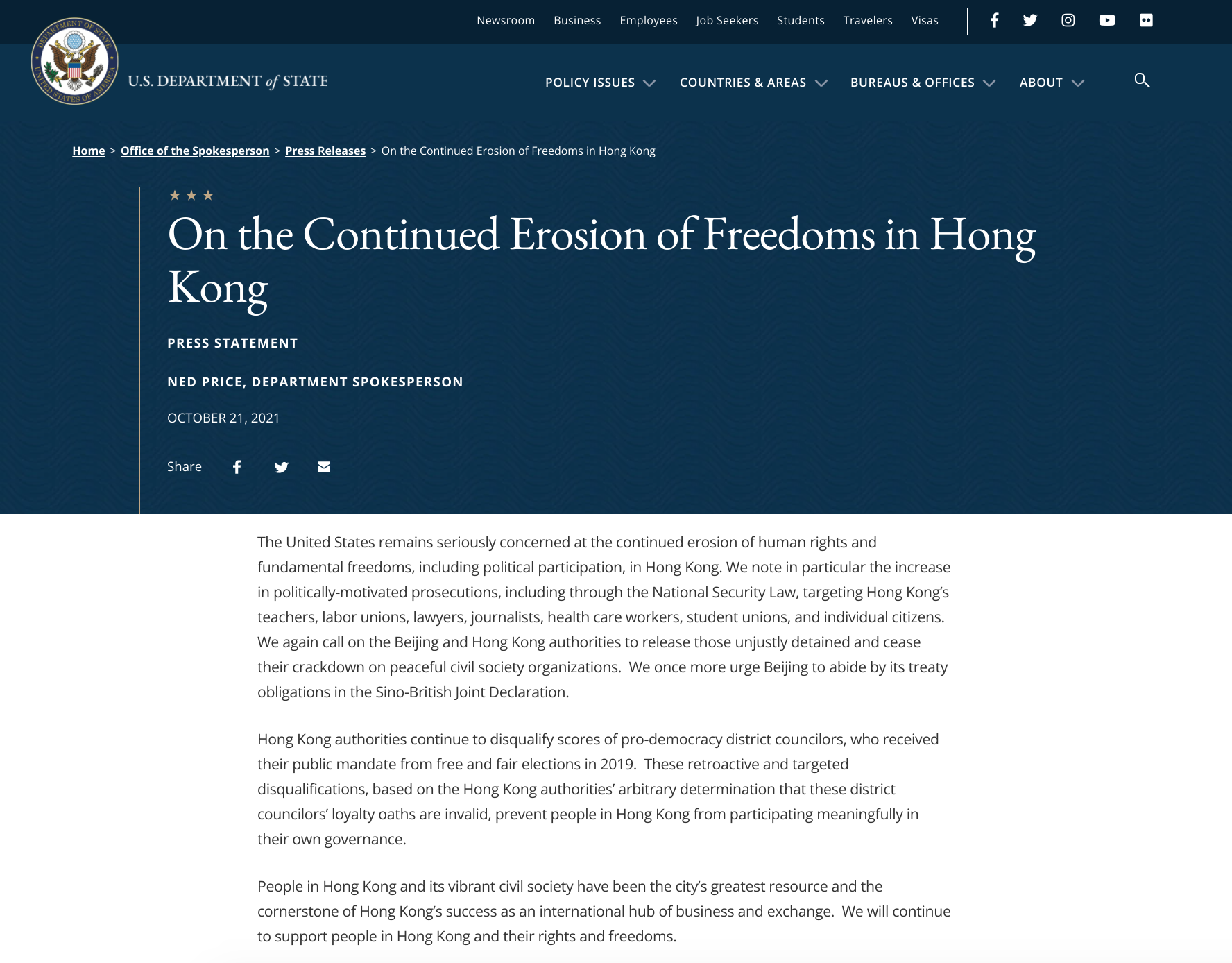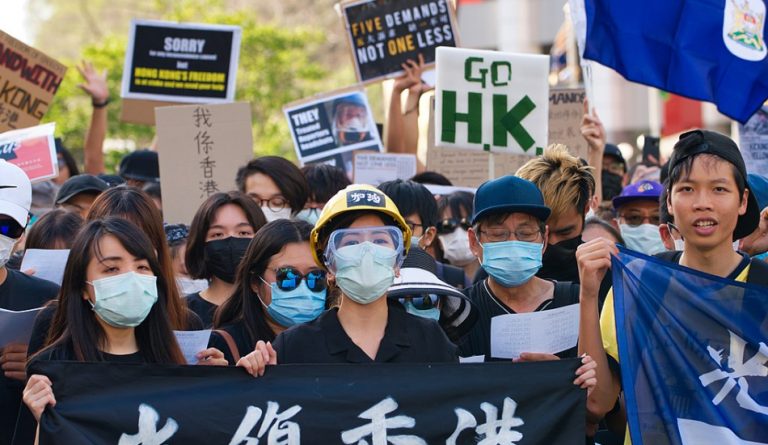On Thursday, Oct. 21, the U.S. Department of State released a press statement titled “On the Continued Erosion of Freedoms in Hong Kong” calling upon the mainland Chinese and Hong Kong authorities “to release those unjustly detained and cease their crackdown on peaceful civil society organizations.” It also “once more urge[s] Beijing to abide by its treaty obligations in the Sino-British Joint Declaration.”
The statement follows the Oct. 16 sentencing of seven Hong Kong democracy activists, including former legislators, who received up to 12 months in prison for their participation in a protest against the Chinese Communist Party’s implementation of the National Security Law (NSL) in Hong Kong.
“The United States remains seriously concerned at the continued erosion of human rights and fundamental freedoms, including political participation, in Hong Kong. We note in particular the increase in politically-motivated prosecutions, including through the National Security Law, targeting Hong Kong’s teachers, labor unions, lawyers, journalists, health care workers, student unions, and individual citizens,” the statement reads.
In September alone, more than a dozen District Council members were disqualified by the Hong Kong government after their oaths were determined to be invalid, including James To Kun-sun and Edith Leung Yik-ting of the Democratic Party, and Lawrence Lau Wai-chung, who is on bail and involved in the Hong Kong pro-democracy primaries.
“Hong Kong authorities continue to disqualify scores of pro-democracy district councilors, who received their public mandate from free and fair elections in 2019,” the State Department noted.
Success
You are now signed up for our newsletter
Success
Check your email to complete sign up
“These retroactive and targeted disqualifications, based on the Hong Kong authorities’ arbitrary determination that these district councilors’ loyalty oaths are invalid, prevent people in Hong Kong from participating meaningfully in their own governance.”
The State Department also stressed the important role of Hongkongers and their civil society, which suffered its worst blow last June when Beijing imposed the NSL on the former British colony.
The law prohibits any speech deemed a threat to “national security” — that is, any expression critical of the CCP or the People’s Republic of China. Its passage following a year of massive pro-democracy demonstrations represented a functional end to the political freedoms that Hong Kong used to have.
In 1984, Beijing had promised that Hong Kong would retain its own laws and civil rights until at least 2047, or 50 years after 1997, the year the city was returned to China from British rule. The UK, U.S., and other countries have highlighted this betrayal as a glaring example of the CCP’s lack of integrity.
Tens of thousands of Hongkongers, disproportionately those with greater wealth and education, have left the city for other countries, such as the UK, U.S., or Taiwan. The population of Hong Kong is falling, as is its worth as a hub for traders and financiers between China and the rest of the world.
“People in Hong Kong and its vibrant civil society have been the city’s greatest resource and the cornerstone of Hong Kong’s success as an international hub of business and exchange. We will continue to support people in Hong Kong and their rights and freedoms.”
Last December, the U.S. Treasury Department under the Trump administration had announced sanctions on 14 Chinese officials, over their participation in the disqualification of 14 opposition members of the Hong Kong Legislative Council.
This March, the Biden administration announced sanctions on 24 Chinese officials who undermined Hong Kong’s democracy and freedom.
In July, Dr. Nury Turkel, vice-chair of the U.S. Commission on International Religious Freedom, stressed the effectiveness of sanctions on Chinese officials.
“The naming-shaming taints that person’s image in public, that is much more hurtful than actual damage that you can cause to the bank account. Case in point, Carrie Lam, for example, she publicly admitted that she cannot use credit cards any more,” Turkel said
“What we can do is to continue to go after those human rights abusers.”
Due to the prominence of the U.S. dollar, economic sanctions by the U.S. compel nearly all international banks to audit financial activity for dealings with the sanctioned individuals.















